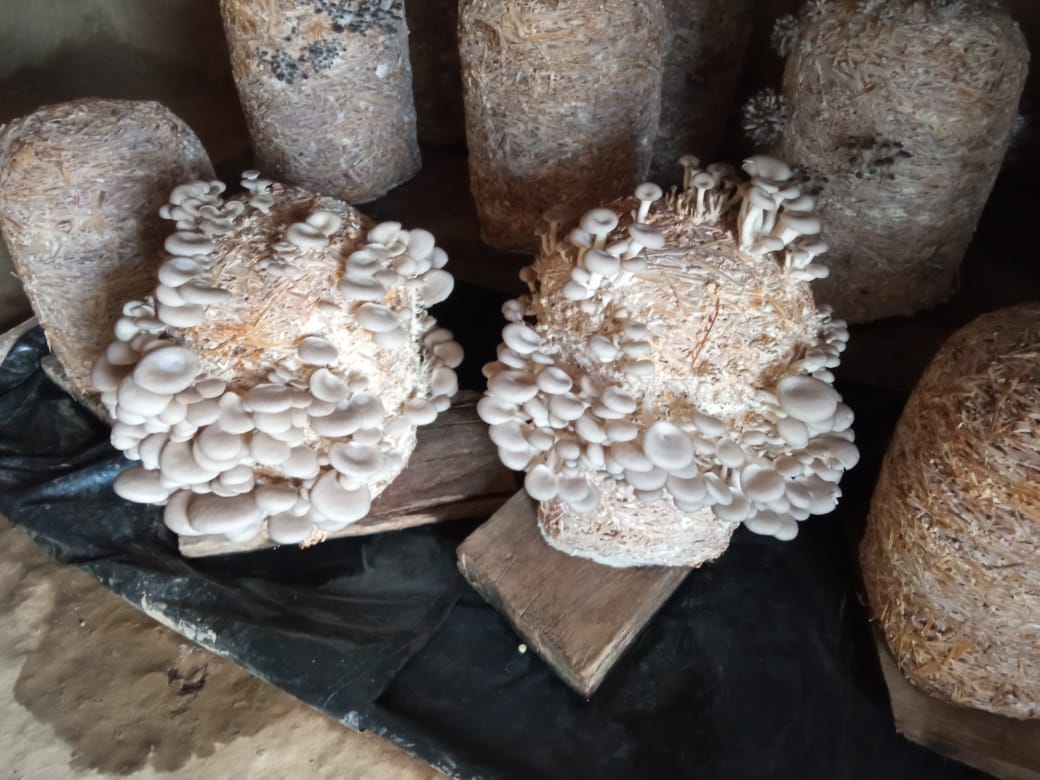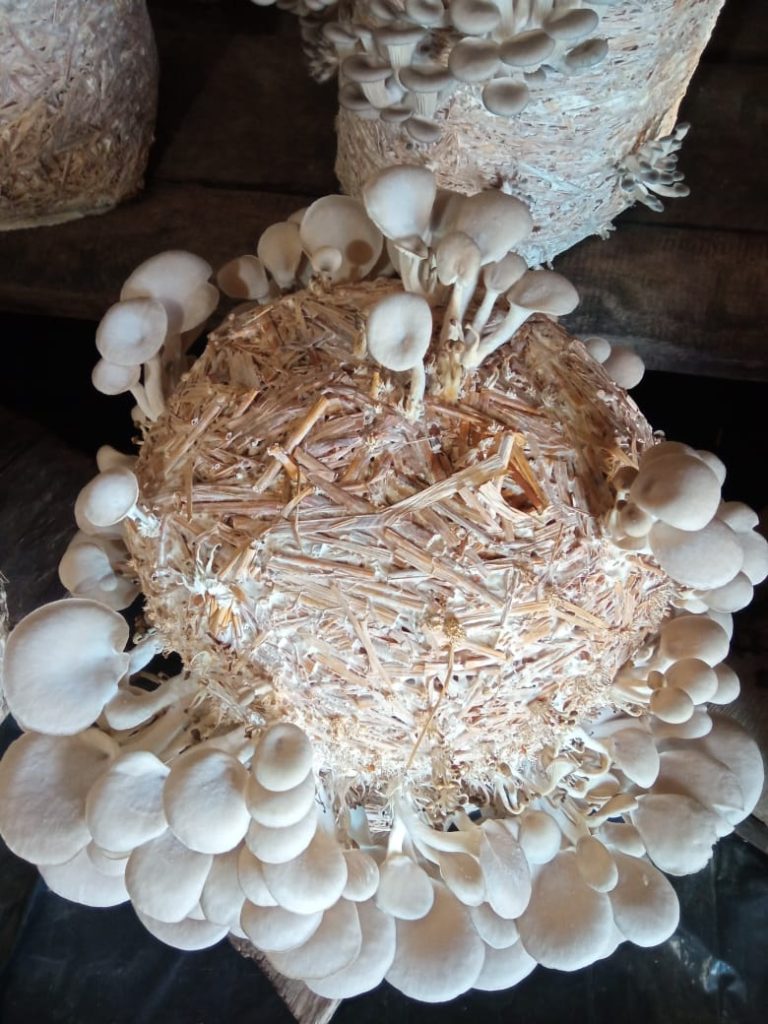
In a small village called Lekhgaun in Surkhet district of Nepal, a new window of opportunity opened up for the smallholder farmers of Nawajagaran Smallholder Farmers Committee, when they decided to use the seed money support from the SAFBIN program for mushroom cultivation. Mushrooms have the advantage of being rich in protein, having pleasant taste and a distinct flavour. It has low input costs and takes less time to produce. Therefore, it is a viable crop for smallholder farmers. Mushrooms can be grown within the household compounds making it easy to grow. The introduction of mushrooms in the small farms have helped farmers to reduce their vulnerabilities and food insecurity.
SAFBIN organised a series of training on mushroom production and cultivation and supported the farmers with seed money to procure seeds and bags. The straw from the remains of harvested paddy from the fields are being used to grow the mushrooms, which reflects on the increased connections within the farms. 
Seven women farmers from Nawajagaran SHFC, with the seed money of NPR. 25000 started collectively growing mushroom in their village. With 170 mushroom balls in the tunnel house located in the village, the farmers have been able to produce 330 kg of mushroom and marketed 305 kg. They have earned a total income of NPR 68000 till now. Though the new initiative is promising, the farmers are also facing challenges in the its marketing. Transportation of the mushrooms to the city market is expensive. The group has already planned to resolve this problem through seeking subsidies in transport from the government. 
The success of mushroom farming has influenced neighbouring farmers. Many are other farmers are now interested to adopt new components in their farms.